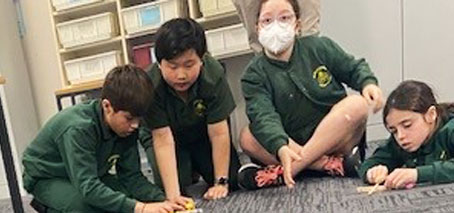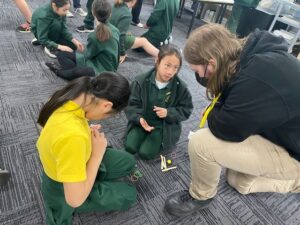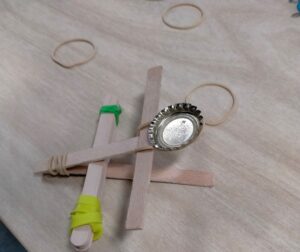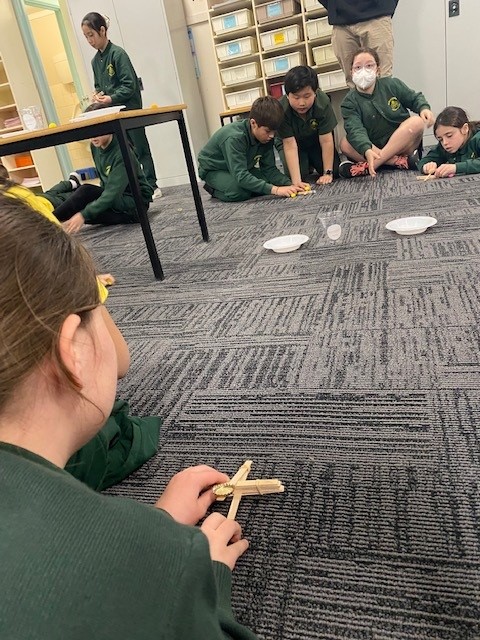By using and modifying catapults made from icy pole sticks and rubber bands, 270 primary students from Hughesdale Primary school learned about forces and energy and thought critically about FLEET’s research and why we are trying to develop energy efficient electronics.
FLEET developed the Forces and energy workshop for Years 4-7 based on pilot workshops run with primary schools in Western Victoria in May and June this year.
“We used what we learned from the pilot workshops to refine our method and improve the engagement and student learning,” says FLEET outreach coordinator Jason Major. “And we are still learning and adapting. For example, adapting the program to fit within a much shorter time frame.”
“Even simple things can have a big impact, such as how I facilitate the discussion with students about the transfer of energy between the two balls in the ball drop activity to get students to work out what is happening without me actually telling them.”
The Hughesdale Primary students ranged from years 3 to 6. Evaluation of students’ experience showed they had learned about the different energy forms (kinetic and potential) and how to apply that knowledge to change their catapult design for a desired result using observation, prediction and, the fun bit, testing.
For example, some students thought to add more potential elastic energy to the catapult lever, and when those modifications didn’t work as predicted, further, thinking, testing and observation led to modifications that produced more effective catapults.
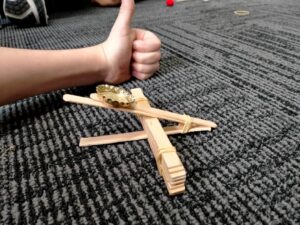
Thumbs up for design success! Students’ later modifications were more successful. Two layer of icy pole sticks increased the strength and potential elastic energy of the lever.
“The end result was a shift across all year levels in students’ conceptualisation of energy,” says Jason Major.
“Their concept of energy shifted from what energy does (it makes you run or be crazy) and what uses it (devices and technology), to what energy is (kinetic, elastic, potential, conservation of energy), and how we can apply that do useful things such as change the effect of our catapults.”
A lot of students also thought critically about the implications of how society uses energy. For instance, at the end of the workshop students mentioned that the more you use devices the hotter they get, which equals heat energy, they talked about heat energy as wasted energy and a need to make devices that use less energy.
Students also thoroughly enjoyed the exercise: “There was a lot of joy and enthusiasm in the rooms,” said Amanda Seach, Assistant Principal at Hughesdale.
FLEET volunteers at the Hughesdale Primary workshop included PhD students Caiden Parker, Yik Lee, Karen Bayros and Abigail Goff (all from RMIT), assisting outreach coordinator Jason Major.
Students used and modified the catapult that is described in the FLEET home science experiment.
See FLEET’s Report and Evaluation
Hughesdale Primary students testing their modified catapults out in the game played at the end of the workshop where they have to land their projectiles in different sized bowls/cups, etc and test who can send their projectile the furthest, etc

